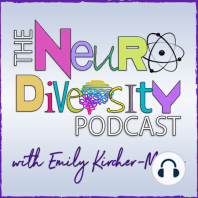37 min listen

The Case for Differential Diagnosis | Gifted | Education | 2e | Psychology | Autism
The Case for Differential Diagnosis | Gifted | Education | 2e | Psychology | Autism
ratings:
Length:
32 minutes
Released:
Sep 5, 2018
Format:
Podcast episode
Description
When a parent suspects their child may be twice exceptional - that is, gifted and an additional diagnosis - what should they do next? Increasingly, the answer is something called a Differential Diagnosis. It’s the process of sorting through two or more different disorders which share symptoms that can mask each other. Our guest on episode 17 is Dr. Catherine Hasler, an expert in the area of Differential Diagnosis. About the guest - Dr. Catherine Hasler is a licensed psychologist who specializes in Differential Diagnosis and treatment of learning, behavioral, and emotional problems of children, adolescents and adults. She has an MA, PhD in Clinical Child Psychology from the University of Missouri-Columbia, A BA in Psychology from Northwestern University, and did her Predoctoral Internship at the University of Chicago Pritzker School of Medicine. Host Emily Kircher-Morris has dual Masters degrees in Counseling and Education, and specializes in the area of giftedness throughout the lifespan. She founded the non-profit organization The Gifted Support Network, is the owner of Unlimited Potential Counseling & Education Center, and is the mother of three gifted children.
Released:
Sep 5, 2018
Format:
Podcast episode
Titles in the series (100)
The Importance of Empathy | IQ | Bullying | Intelligence | Gifted: Emily Kircher-Morris explores the concept of empathy with Dr. Michele Borba, author of the book “End Peer Cruelty, Build Empathy: The Proven Six Rs of Bullying Prevention That Create Inclusive, Safe, and Caring Schools.” They discuss ways to help... by Neurodiversity Podcast